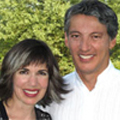Let us begin by asking ourselves the questions, “Who am I?” and “How do I define myself?” How do we define who we are? Is it by our primary role, such as parent, CEO, spiritual teacher, artist, or student? Or do we define ourselves by our values, accomplishments, beliefs, personality, past experiences, childhood, body, (age, gender, size and shape, color, state of health), nationality, or perhaps our hopes, dreams, mistakes, regrets, grievances, and fears?
Most of us mistakenly confuse our meaning and identity with one or many of the above categories. We are obsessed with two ideas: getting what we want or think we need but don’t have (for example, material possessions, relationships, people, money, or happiness); and becoming what we want to be but have not yet become (for example, happy, peaceful, loving, healthy, wealthy, famous, successful with a good career or status, or a good parent). The truth is that none of these things define who we are now, and none of them could possibly be used to define who we will become at any moment in the future.
Before we dare think that we could ever be truly happy in this lifetime, we need to discover who we are not. Once we realize that we’ve always been mistaken in how we looked at ourselves, we are released to awaken to who we really are and receive the limitless gifts that come with this knowing.
We have been led to believe that we are separate, independent human beings. Yet, to accept as true any of the labels that, we claim, have defined our identity results in our being codependent and severely limited. All that these definitions do for us is reinforce our limitations. The very fact that we depend so heavily on them for our sense of self reveals just how unaware we are of our own dependency on external conditions to make or break who we think we are.
This means we do not know who we really are; we do not know our true purpose, and we do not know what will truly make us happy. So, how could we possibly be free from suffering and experience joy in our lives?
It is a dangerous misperception to accept as true the widely held beliefs that (1) happiness depends on external conditions and (2) we are not totally responsible for ourselves and the life we create. Both of these ideas lead to the belief that we are helpless victims, that is, at the mercy of others as well as random chaos.
And both of these beliefs are to be re-evaluated and transformed before we can know who we truly are and begin a new life filled with purpose and meaning. Recognizing just where we have misplaced our identity and meaning shows us also where we have invested our trust. Whatever we value mentally and emotionally is where we place our trust in life. For most of us, that trust has been placed anywhere and everywhere except where it belongs: with our one “Unified Self,” the self we were created to be.
To get to know the Unified Self, we must first identify the source of the distorted and misguided thought system responsible for all the pain and suffering, disillusionment and disappointment in the world. Next we must step back and objectively give it a thorough examination of its purpose and modus operandi.
The article above is an excerpt from Take Me To Truth by Nouk Sanchez and Tomas Vieira – published by O Books
